In the comment section of every disappointing news headline, you will find hundreds of people summoning the faceless villain responsible for everything wrong in the country: the “bobotante.”
Playing the blame game is a difficult habit to kick, especially in moments when we feel powerless to do anything but watch the world burn. “I told you so” is an addictive refrain. We may have lost the battle, but we still get a taste of moral victory.
The “bobotantes” are, of course, a myth. In 2016, voter polls revealed Rodrigo Duterte’s sizable lead in the elite class, and globally, the Philippines had become known as “patient zero” of the disinformation epidemic. (Earlier this week, Duterte was arrested by the International Criminal Court over his alleged crimes against humanity during his administration's "war on drugs." The prosecutor of the ICC said there are as many as 30,000 drug-related killings by police or unidentified individuals during Duterte's term.)
Since then, we’ve adopted a new language to boost our understanding of our incomprehensible times: from the oxymoron “fake news” to the inflamed redefinition of “trolls.” This is thanks to the work of Filipino researchers and organizers who named and studied what we were going through before we even knew we were going through something.
Now, these scholars and community organizers have come together, Avengers-style, and founded Sigla Research Center. I meet some members at a homey studio in Taguig; we sit around a small table, inuman-style.
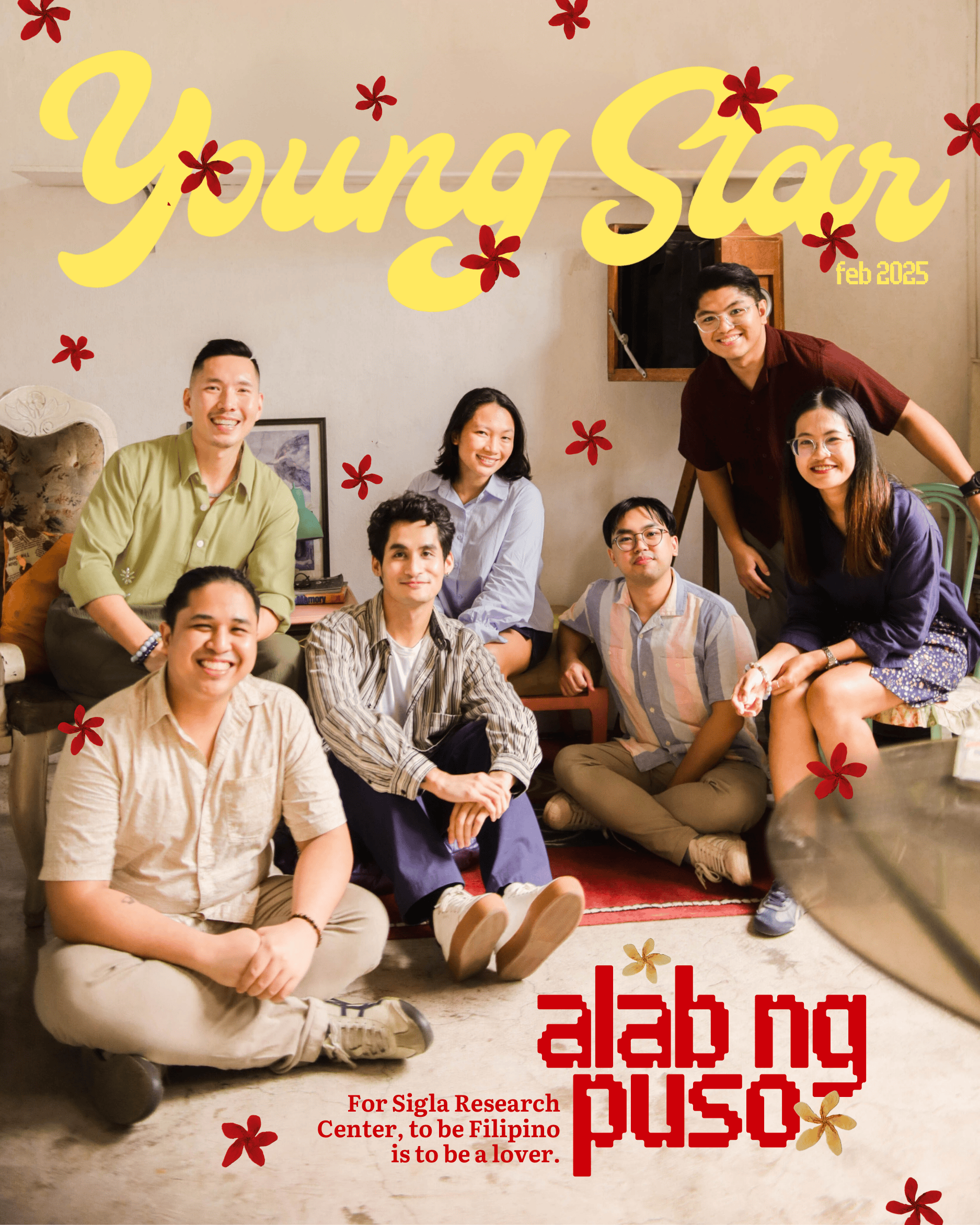
“Academic papers, they’re very boring,” says JP Campos, Sigla’s Communications Strategist. He’s also a video producer and the founder of social media-first independent media organization Media Commoner. “I mean, mahirap siya basahin,” JP backtracks. “Hindi naman boring.” The table of academics erupts in laughter.
The earliest iteration of Sigla was a collaboration between JP and Dr. Jonathan “Jon” Corpus Ong to bring research findings closer to more people. A professor of Global Digital Media at the University of Massachusetts Amherst and Sigla’s executive director, Jon authored seminal disinformation studies and co-wrote oft-viral explainers with Media Commoner, like ones on the Marcoses’ performance of victimhood or the anti-masa sentiments of disinformation advocacies.
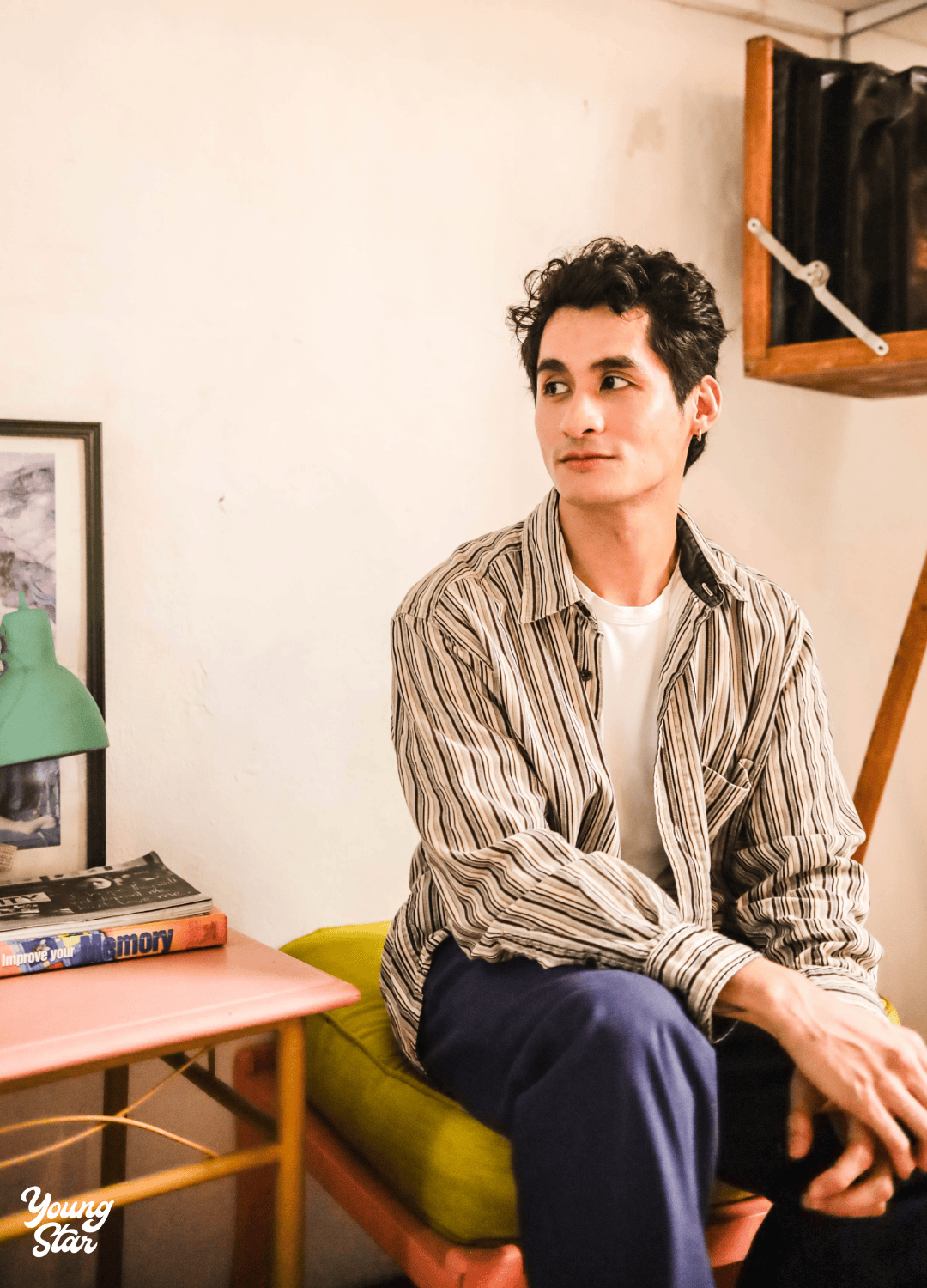
Jon started Sigla to continue both the academic work and its translation and communication to ordinary people. “Academics can do more to reach out to them. Hindi lang tayo (nasa) ivory tower o taga-sulat ng paper,” he says. “We can partner with community organizations to do advocacies. We can influence policy at kausapin ang ating mga kongresista sa kanilang mga batas na loka-loka.”
As such, the people behind Sigla are not from a single discipline and are not only academics. Their work sits at the intersections of political communication, deliberative democracy, tech ethics, and worker justice, with a unique emphasis on healing and solidarity.
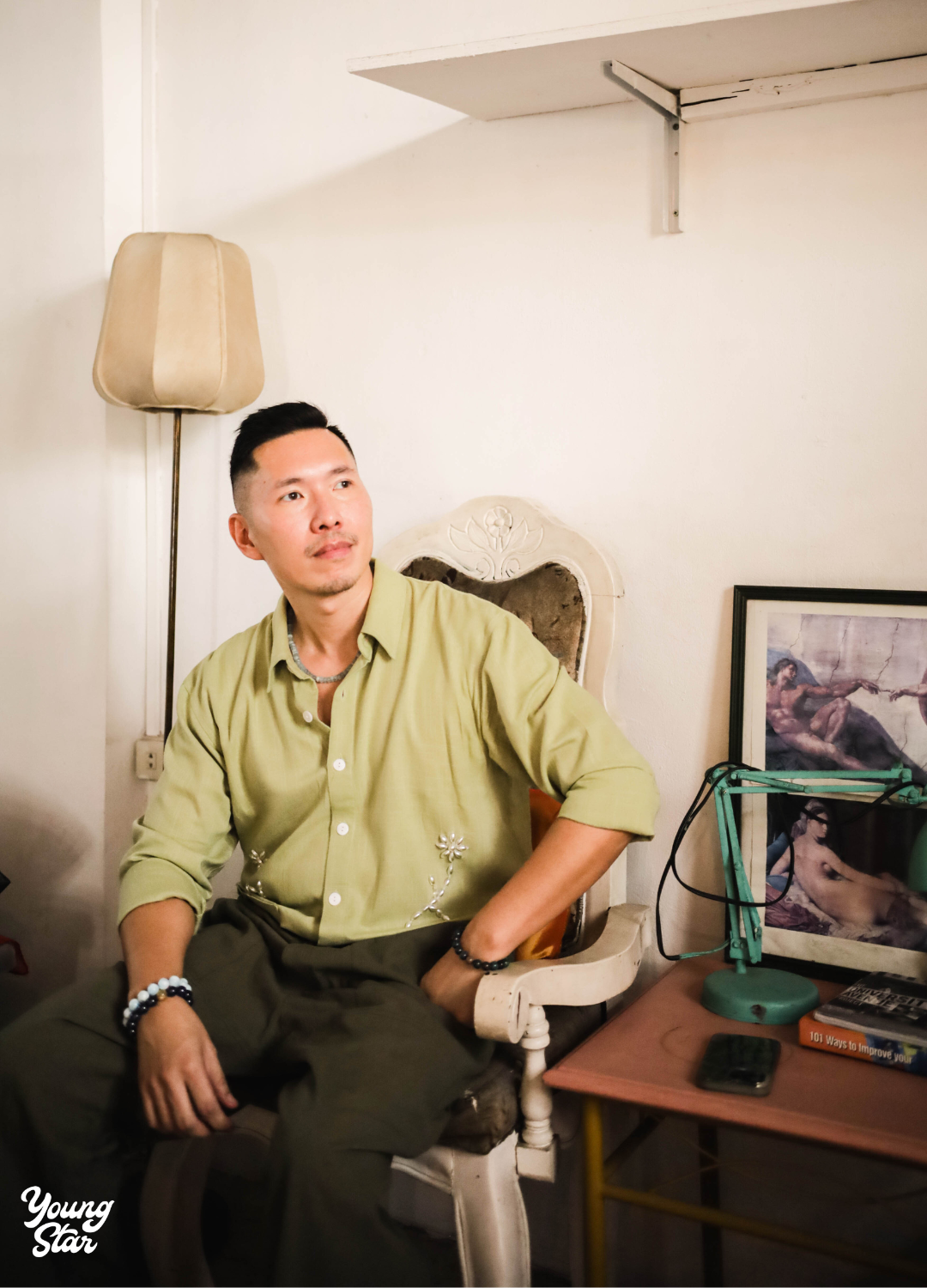
This focus on wellness, says Ross Fallorina, started as an offshoot of a report he published with Jon and Jeremy Tintiangko in 2021. While the research set out to assess the campaigns and communication of human rights organizations, initial findings urged them to shift focus. “Fundamentally, within these organizations, mas may pressing issues internally: funding structures, the unsustainability of their jobs, and burnout and worker wellness.”
“What is striking and paradoxical to me,” he continues, “is that they’re human rights organizations, but even within their organizations, they cannot champion those principles themselves. You can’t just be implementing programs, you also have to take care of the workers putting a lot of passion and work into it.”
A Sociology graduate student at the University of the Philippines Diliman, Ross wanted to be an “armchair theorist archetype, because I thought academics were useful that way.” Since working and co-authoring with experts in the field — including Jon and Dr. Nicole Curato, Sigla’s research Lead for Citizen Engagement — he found himself making more impact outside the classroom.
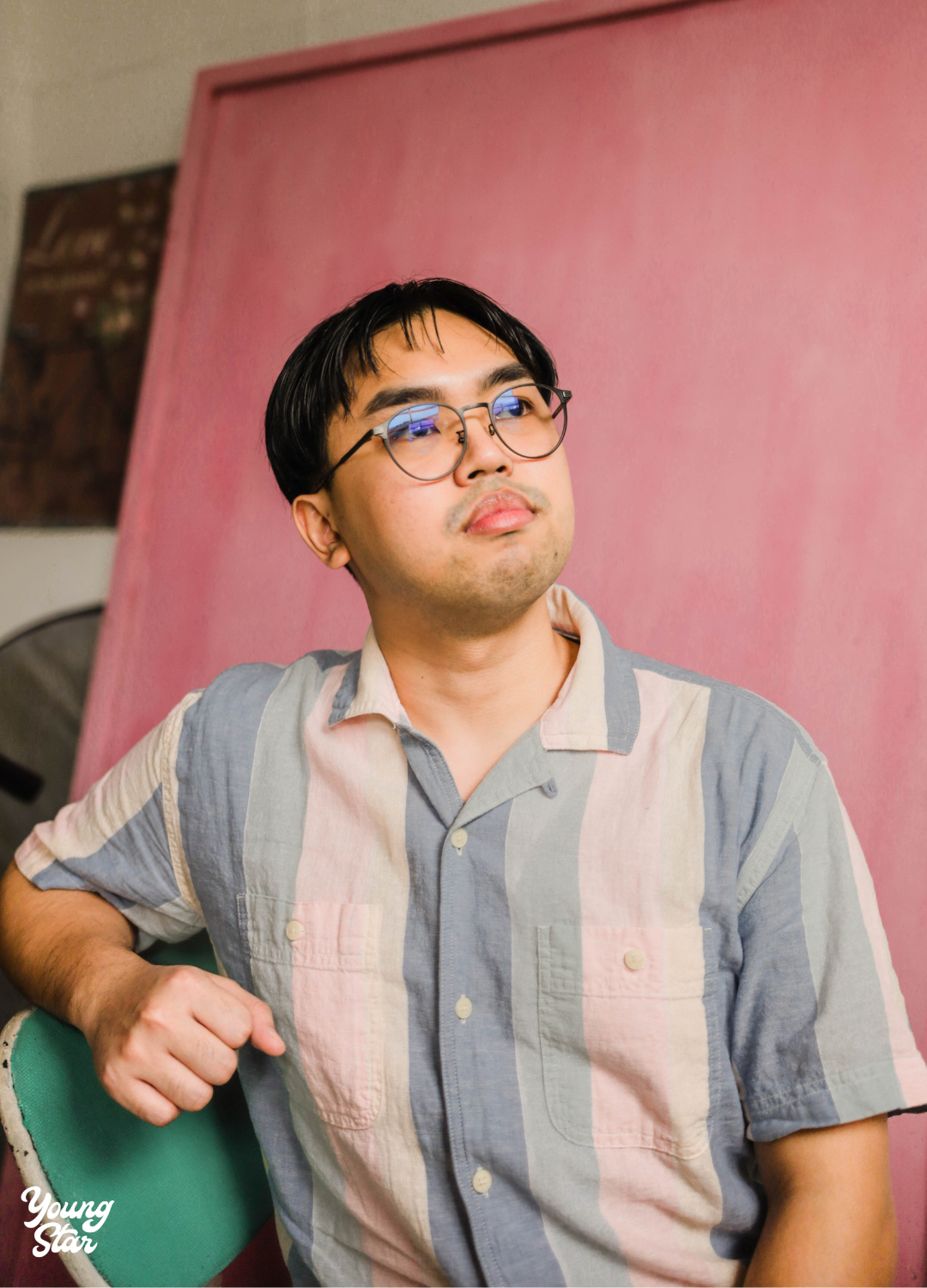
As Managing Director of Sigla, he pays it forward and helps younger researchers find their own path. “We don’t want them to be like academics who are spreading fake news, or egoistic, or burnt out.”
The findings from that 2021 report also gave way to Commune, a project managed by organizations Dakila and Active Vista, which Sigla’s Head of Public Engagement Juan Felix is part of. The intent, he tells me, was to build solidarity and provide a collaborative environment. “A lot of us work in silos. Kung HIV/AIDS ang focus ko, ito lang ang gagawin ko. But when you take a step back, all (the work we do) are human rights, and we should be working together.”
Commune enabled organizations to exchange skills and, simply, get together as a community. “Maraming natuwa,” Juan Felix says of the reception to the project. “They were always asking us kailan ‘yung next, kaso given the funding freeze na nangyari, it’s not looking good.”
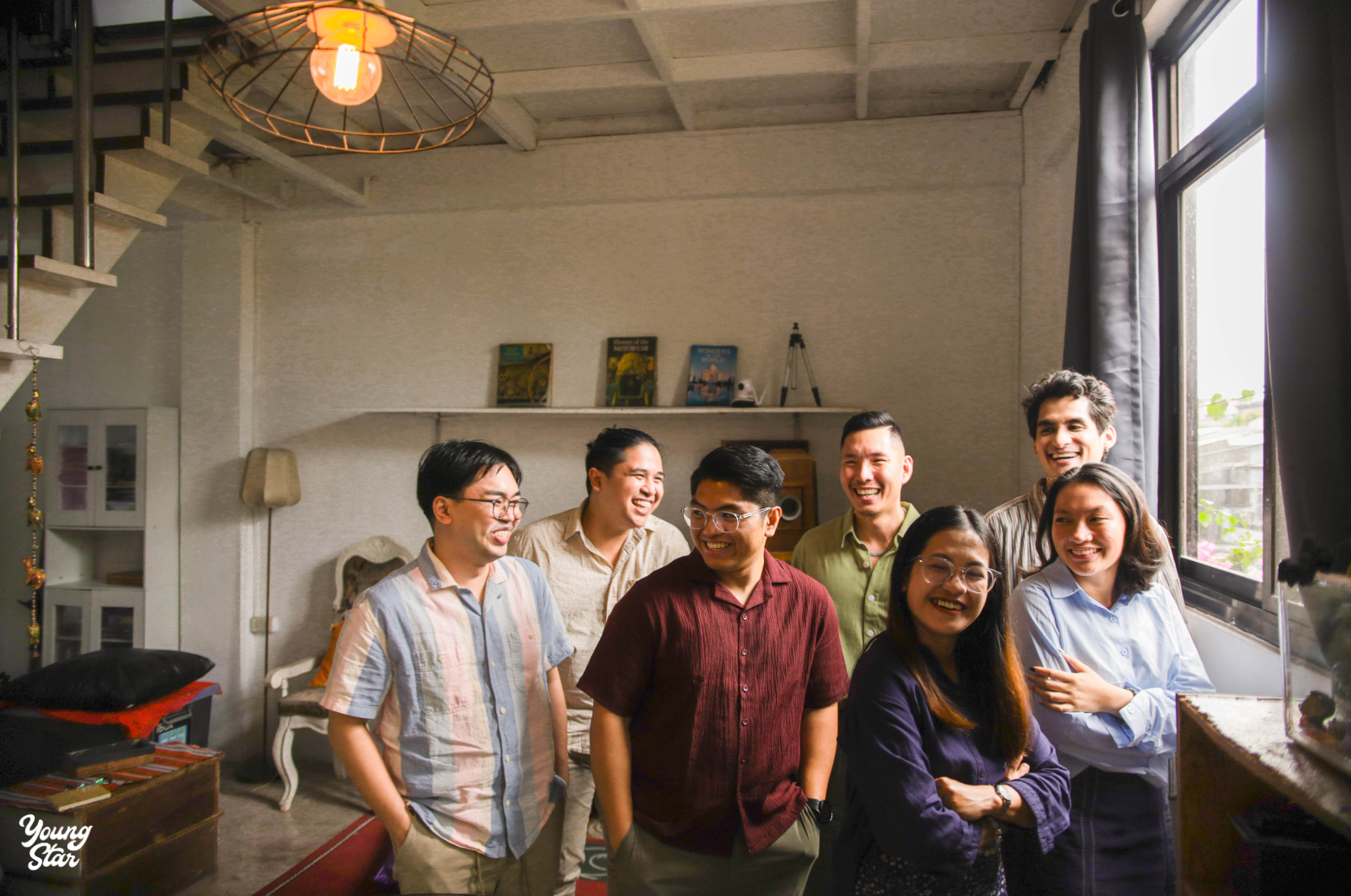
Earlier this year, on Donald Trump’s first day back at the Oval Office, he moved to freeze the US Agency for International Development (USAID)’s foreign funding assistance, in service of his “America First” approach. Many of our organizations and government agencies rely on the USAID for crucial programs on health, social development, and more. Felix recalls a conversation with a member of an HIV/AIDS organization. “Sabi niya hindi naman directly affected ‘yung org nila kasi nakaka-produce din naman tayo ng HIV pills sa Pilipinas, pero the people who distribute those are paid by USAID. Ang daming mamamatay na tao globally because of this.”
As of writing, over 80 percent of USAID programs globally are officially ending, and along with it a massive loss of jobs in the development sector.
“Napansin ko, for the veteran organizers, nakikita nila ‘to as a moment for reckoning with how dependent we were on US funding. Nagawa naman before (without it), we’ll just go back to that,” Juan Felix adds.
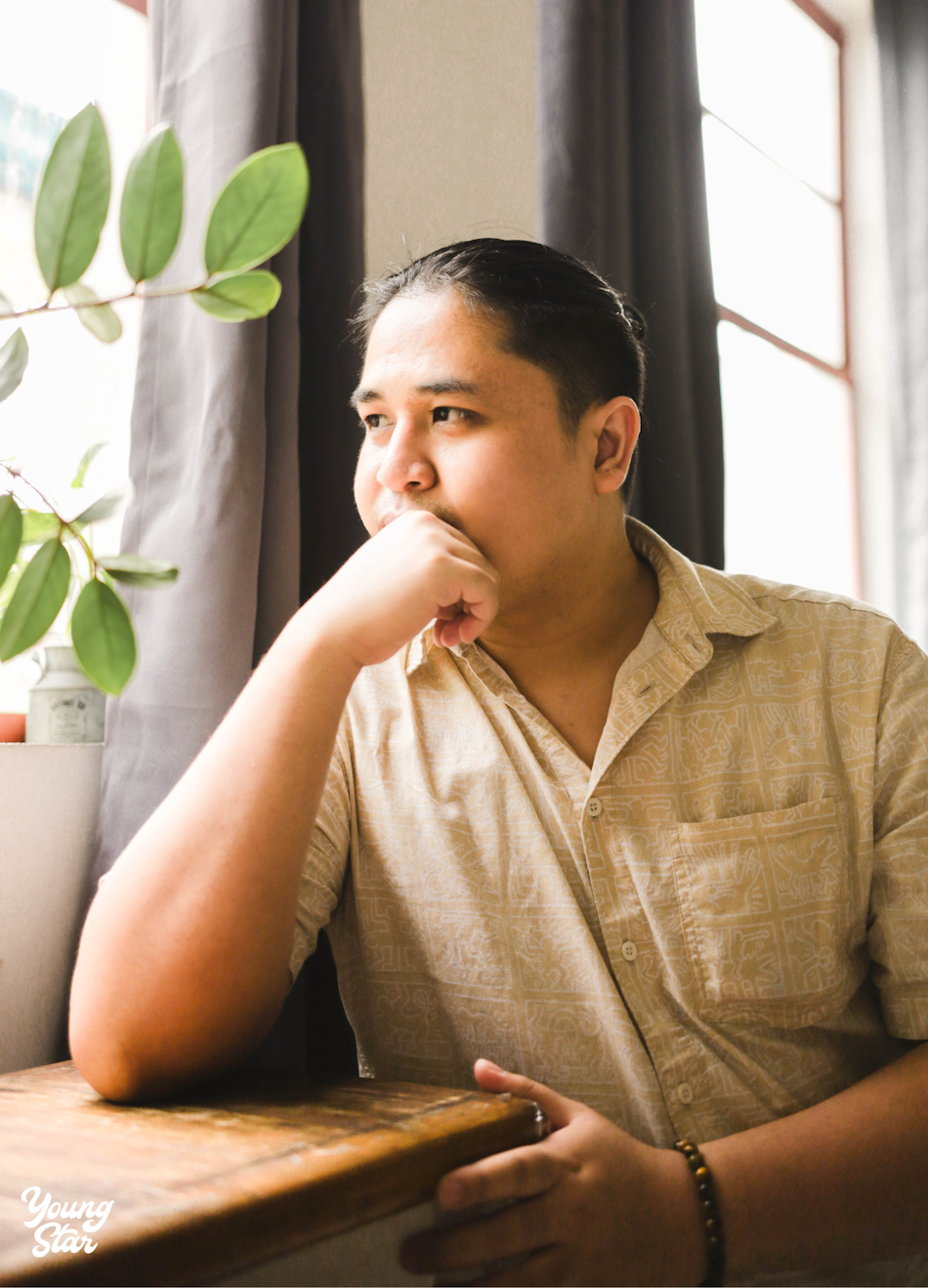
Amidst the layoffs, organizers and advocates have been stepping up for their communities, opening positions wherever they can and sharing and collating job opportunities for their peers. “It’s easy for people in the development sector to jump to a corporate job because we have the skill set, but there are people who fight their way to remain in this space,” says Rowella “Owe” Berizo, a digital rights youth advocate and one of Sigla’s researchers. “I agree that it’s a reckoning: we have been working separately, fighting each other for funding, when in the end, just one move from Trump and we’re all gone.”
JP, who used to work in advertising, echoes Owe’s sentiments about fighting to remain in the development sector. “Ang daming moments na I don’t want to do this anymore, there’s nothing changing. But we all keep coming back, kasi when we reflect about the grief, anxiety, and frustration we feel (about) the reality we live in, it comes from a place of love. Love is at its tail,” he says.
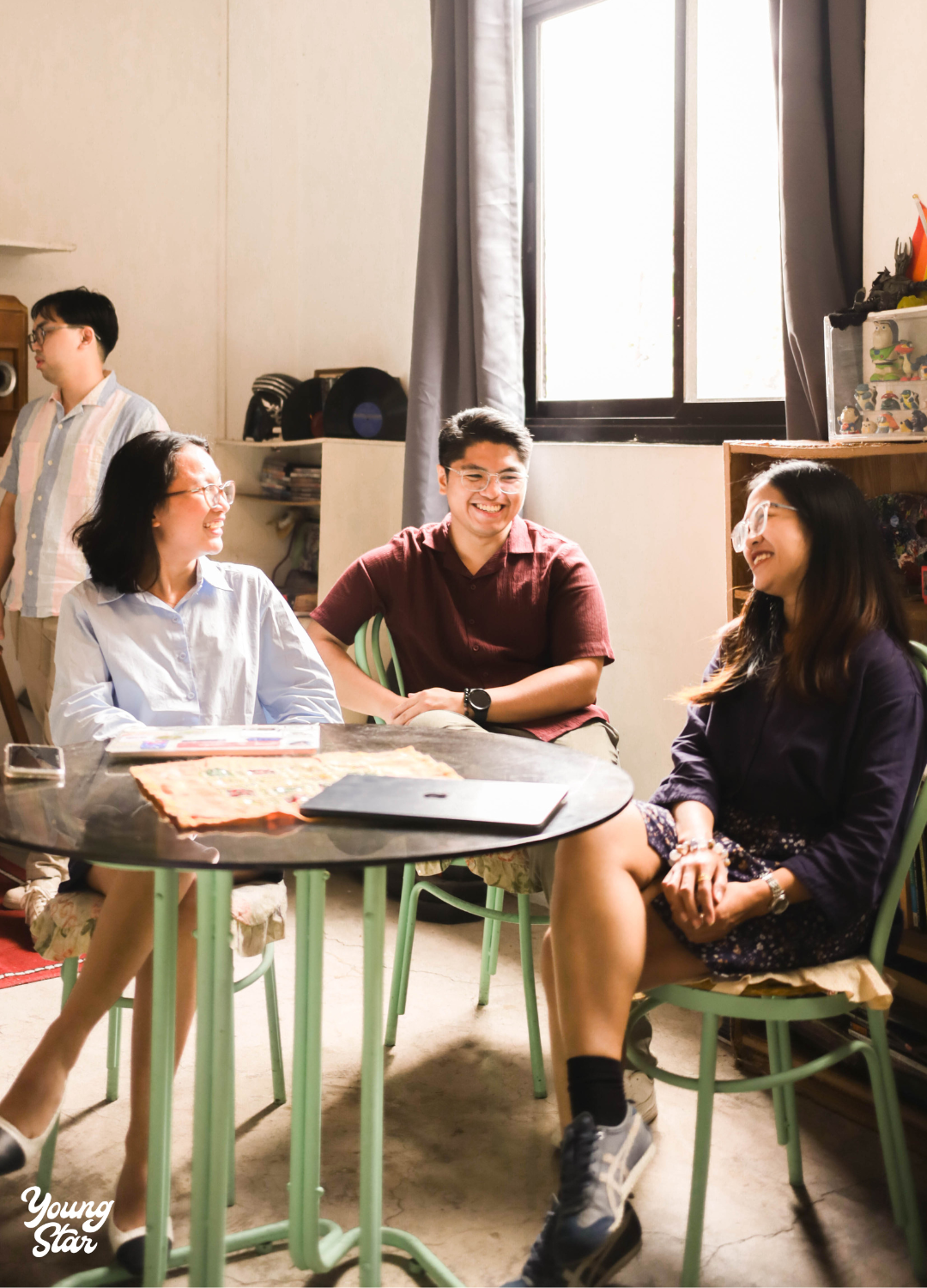
“Ang hirap niya i-navigate kasi gusto mo naman ‘yung ginagawa mo eh, but the barriers keep stacking up against you,” Owe continues. As a young queer person, it’s extra tough to work in a sector dominated by white men. “But the fact that we’re here fighting for our rights, our health, for gender-affirming care, for our digital rights, for the controversial Adolescent Pregnancy Prevention Bill that’s been backsliding because of social media — it’s love.”
This is also why Noemi Morada, the organization’s Admin and Finance Manager, stepped away from corporate to work with Sigla. “In corporate, you’re just doing things robotically. You’re supporting the company, but what’s the point?” she says. “I wanted to give my knowledge to a different outlet.”
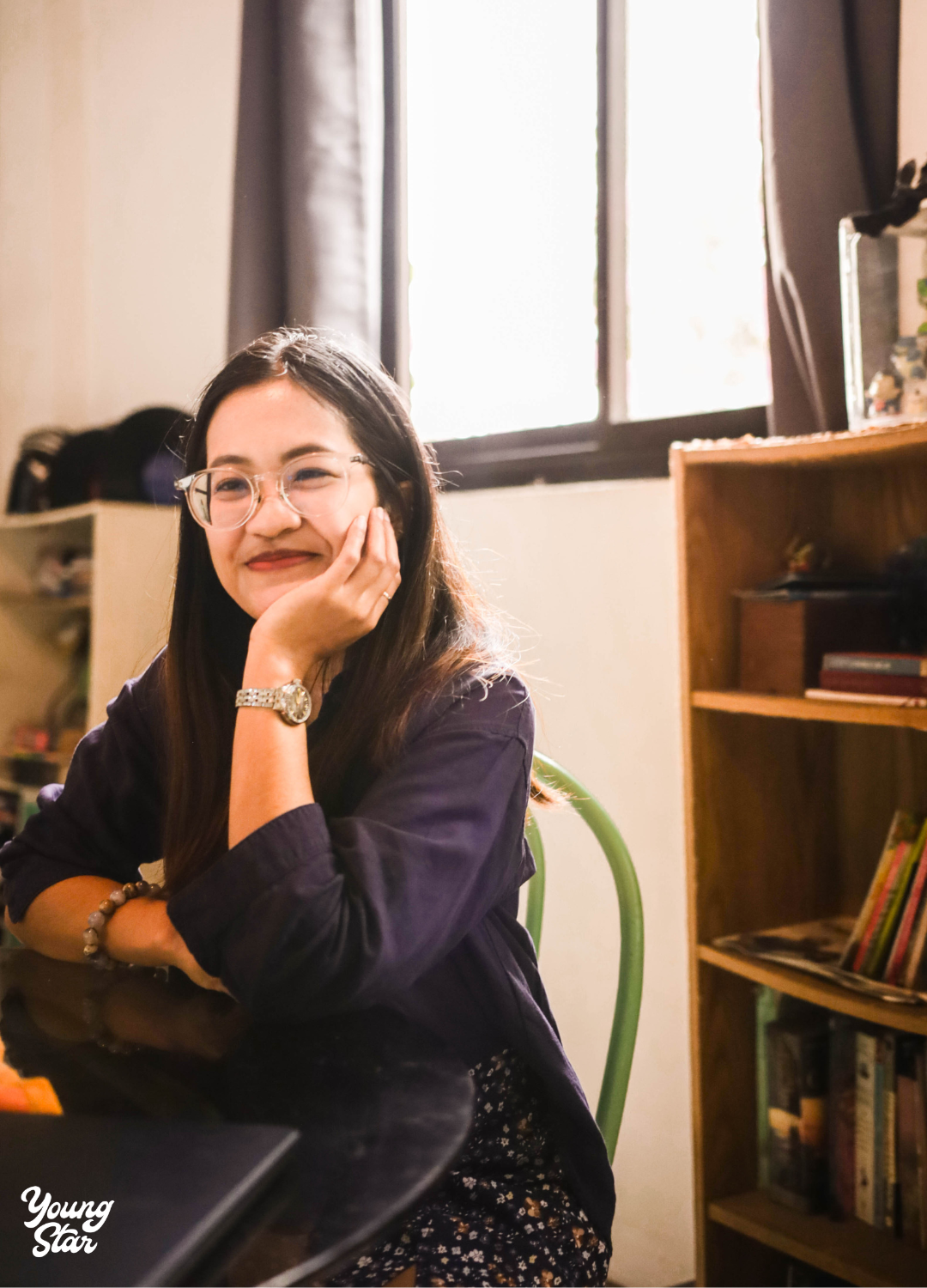
Still, JP says it’s important to balance passion and reason. “We can no longer operate (as) bira lang nang bira. It has to be guided by logic and strategy.”
This aligns with Sigla’s vision to be a space for healing. Ferdinand “Ferds” Sanchez II, the president of Manila-based youth organization Tara Kabataan and another of Sigla’s researchers, says the org owes this stance to the Black feminist movement which first argued for rest as a form of resistance.
“I joined Sigla precisely because of its wellness component,” says research fellow Neen Sapalo. “Research, especially on jarring contemporary issues, can be exhausting. Having a collective that not only cares for its members but also for communities-at-large is not only a huge relief, but is also essential in ensuring that our projects remain relevant to the general public. Being part of Sigla is healing, especially for a researcher recovering from burnout.”
This healing also extends beyond researchers and development workers, to every Filipino. “Healing and solidarity are not the first thing you think about when you study disinformation. It’s always about finding the bad actor and how to name and shame them,” Jon explains. “May next step pa: (after) all these harms and conflicts, how can we still love together? How do we live as one country across political divides?”
This is why deliberative democracy, where thoughtful discussion and debate are central to a nation’s decision-making, is also a foundational element of Sigla’s approach. It means being open to listen to differing beliefs and allowing yourself to be changed by what you discover. “On top of already-existing deep social divides, the political developments in the past 9-10 years have left even deeper divisions among us. Centering healing comes out of the recognition that a better world is only possible if it is forged together,” says head of Research JM Lanuza, who is also an assistant professor at the University of the Philippines Manila and a PhD student at the University of Massachusetts Amherst.
Ferds recalls a recent citizen assembly he headed in Makati: “There was fear na baka those we invited may not come dahil walang interest or hindi naman nila ‘to paglalaanan ng oras. But then they came and deliberated. In my engagement with Sigla, nagkakaroon ako ng understanding that we’re more similar with people rather than different.”
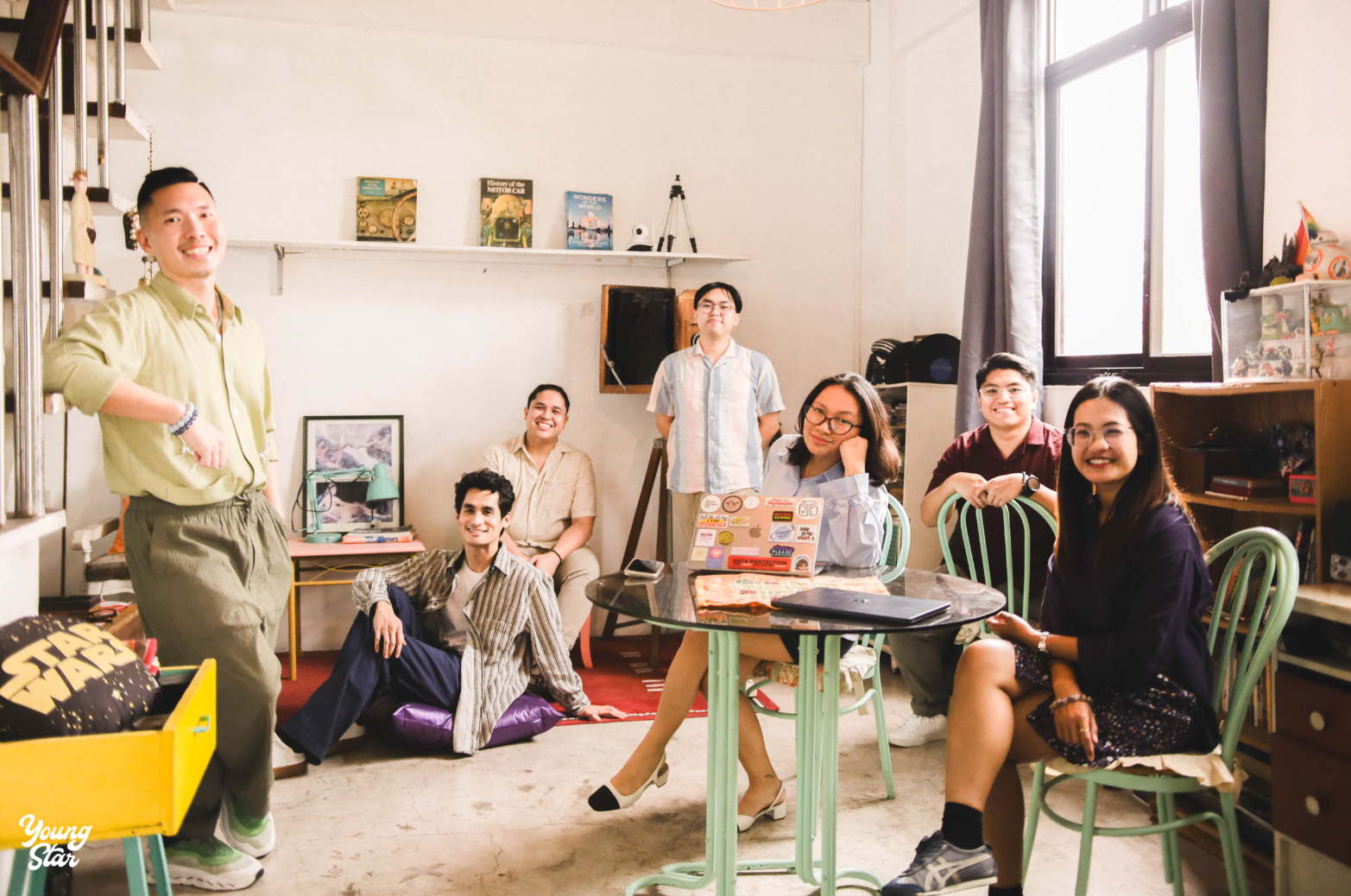
This is a potent realization at a time of intensifying political polarization. “Post-2022, ang daming questions na what we were doing wrong in academia, journalism and human rights,” Jon says. “I think we should have kept that conversation and really dwelled in the discomfort of that. How can we reach out to the other side?” Sigla has been intentional about citizen empowerment and working with labor unions and precarious workers. “The answers are not going to come from my colleagues or even myself, but from listening to newer voices.”
Sigla takes pride in being a disruptor, in countering the mainstream even among their allies. It takes a great amount of courage not just to go against the grain but admit that we still don’t have all the answers.
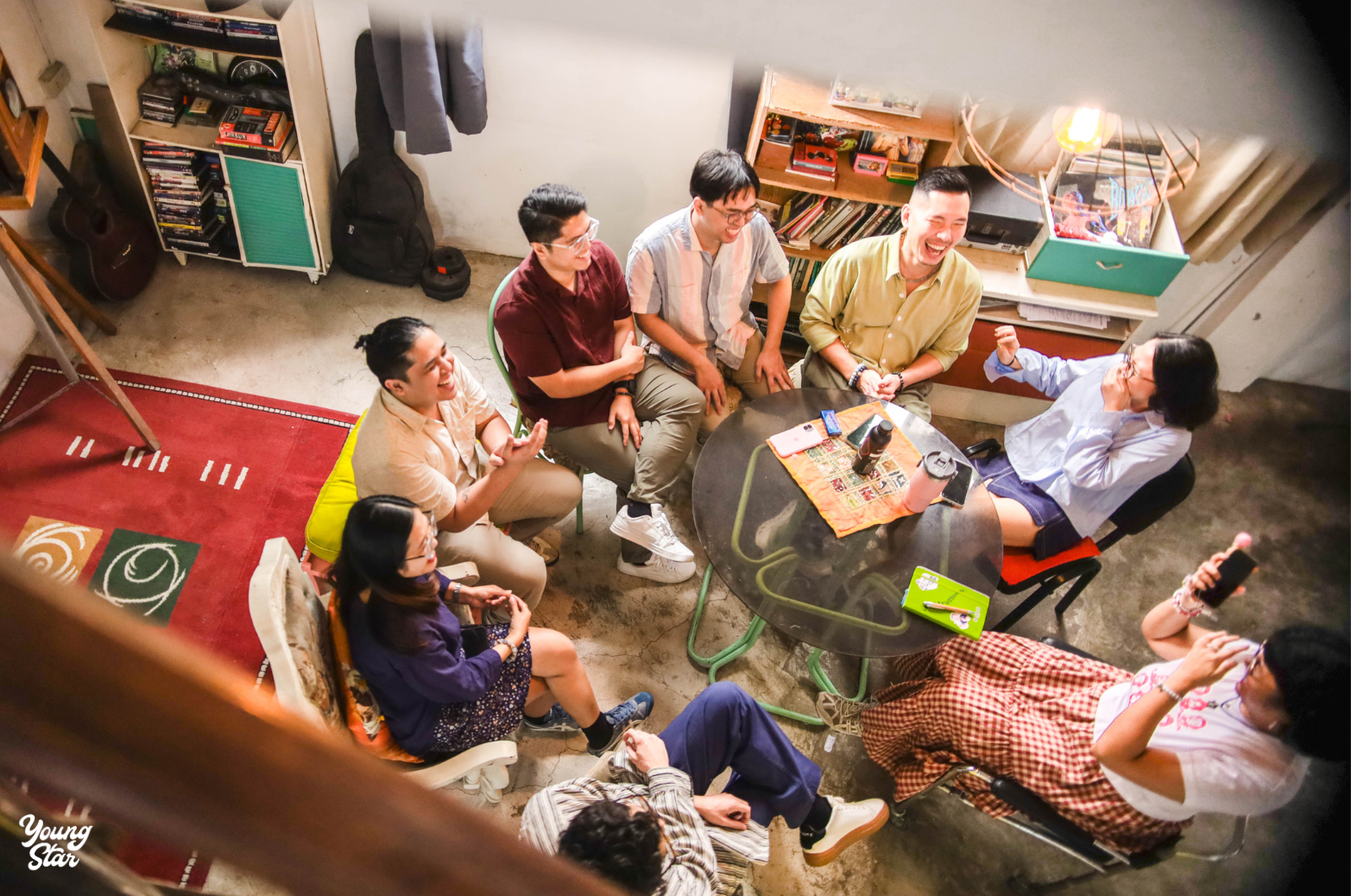
In 2023, Jon’s podcast with journalist Kat Ventura, “Catch Me If You Can,” hosted Sass Sasot, a popular pro-Duterte vlogger. The goal, Ross recalls, was to find a commonality with rabid supporters of the administration. But even before the episode went live, the team received backlash. “The fact that we interviewed Sass, people found it problematic already. They didn’t know yet what the conversation was about, the kind of questioning (we did),” Ross says. Even allies questioned their platforming of a known “enemy,” a response Jon calls “instinctual.”
Ferds shares a similar encounter. As an activist often experiencing redtagging, he’s learned to be wary of state-led media. His mentor Dr. Nicole Curato, professor of Political Sociology at the Centre for Deliberative Democracy and Global Governance at the University of Canberra, advised Ferds to still hear them out. “They’re workers from the government who, if they are reaching out to you, may have the same values. At the same time, what can you also learn from them?” he says.
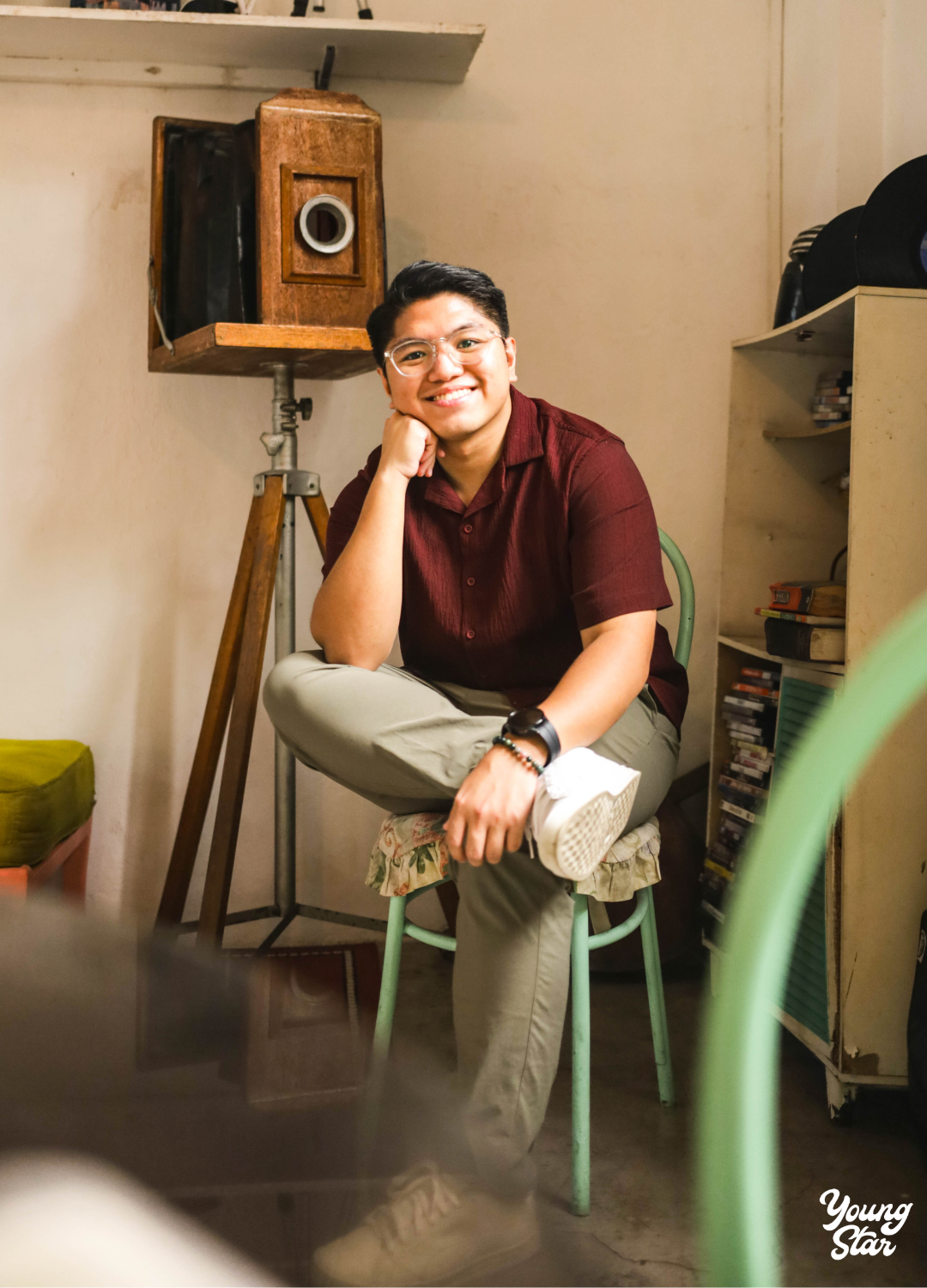
“In our minds, we think of people as demographics, but they are individual people with individual experience,” Ross adds. “(Everyone says) para sumikat sa social media, find your niche. This can systematize (people) into boxes.”
Owe is reminded of a paper previously published by Sigla on parallel public spheres. “It’s essentially (about how) we group and categorize ourselves into yes or no, black or white, and then we clash.”
She adds that our collective identity as Filipinos, along with our similar struggles, are overshadowed, perhaps intentionally, by divisive topics like religion and sex education. “(‘Yung) pag-unfriend ko sa friend ko na Marcos supporter, that’s parallel public spheres — there’s a name for it. And when you talk to people about it, it’s also a reality for them.” Naming these shared realities reveals that we, again, are more similar than we realize.
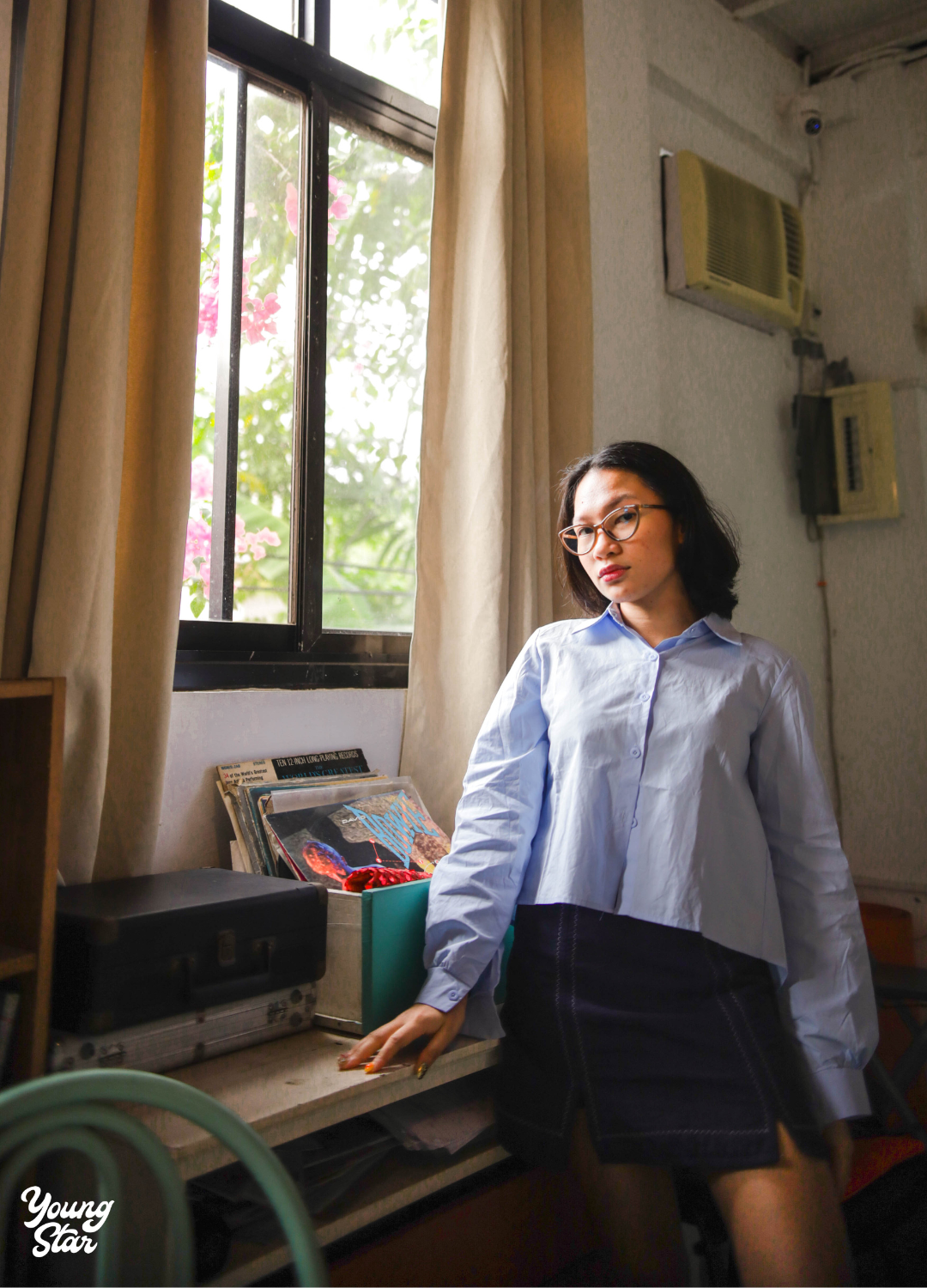
“May psychosocial component din talaga ‘yung politics, like unfriending someone you’ve known since you were a kid. It has an emotional impact,” JP adds. “We recognize this is a time for healing. Let’s meet again.”
“Sabi nga ni Nicole,” Ferds chimes in, “rather than calling out, we call in.”
One of Sigla’s biggest projects is the Philippine Disinformation Resource Hub, a comprehensive online portal for disinformation studies in the country. Together with Out of the Box Media Literacy Initiative, they crafted syllabi, lesson plans, explainer videos, and class activities that educators can use, designed with the Department of Education’s current curriculum, like the Media and Information Literacy (MIL) subject taught in Senior High School.
The team describes the hub as “more sociological,” going beyond the ultra-technical, whitewashed curriculum of MIL. It covers not just simple fact-checking but a more human-centered understanding of disinformation, revealing too that this is not a phenomenon that started on social media, but one that has many manifestations throughout history.
Sigla also has an ongoing elections project on disinformation tactics on the local level; the intersections of artificial intelligence and digital labor in the Philippines; and a deliberative democracy summer school for students, government workers, and civil society actors.
It’s a busy next few months for the organization. I ask where they get the courage to keep going. “I would like to think that I don't have courage,” JM says. “There's so much to fear for every day. My fears are just as real now while conducting fieldwork in a red zone in BARMM, as it was 12 years ago when I was being watercannoned by the state in Mendiola. But when I see the toiling masses suffer so much more than me, or when I think of what society I would want my daughter to grow up in, I feel like I have no choice. I owe it to them.”
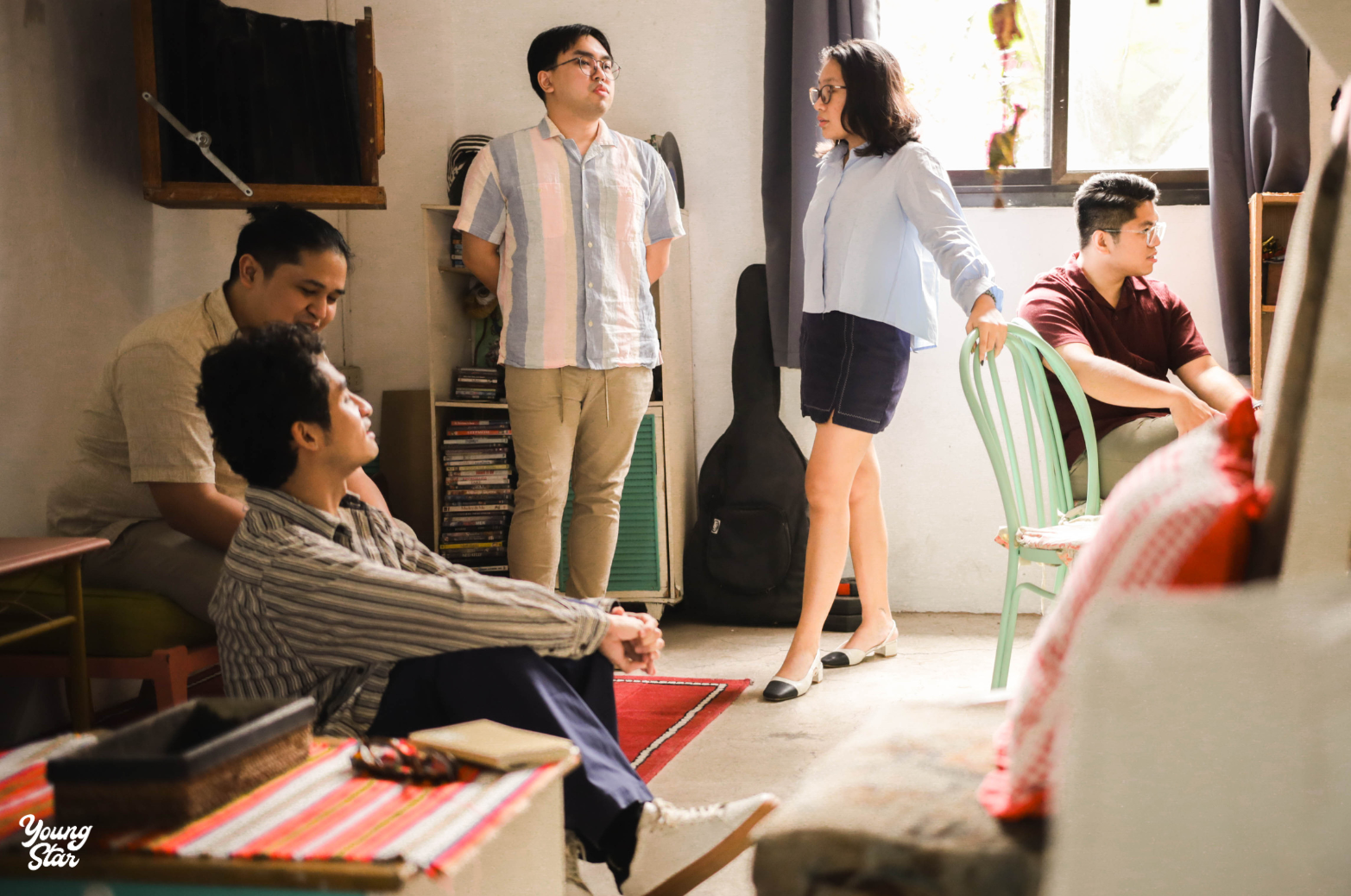
“I find courage in the fact that we’re not the only ones doing it,” Ross adds. “We always recognize and give tribute to the work done by practitioners on the frontlines.” Neen continues, “How dare I lose courage if my grassroots collaborators, who bear most of the brunt of today’s problems, have been unwavering and resolute in their mission to change how the world works?”
“When trying to read history, especially as part of the labor movement, we’ve seen how we’ve progressed from before,” Ferds says. “Where I get my courage is that another world is possible.”
JP cites a paper by their teammate Nicole, which found that Duterte garnered support from voters by providing them hope. “Hope is something that expands time and space. It makes you see a future,” he says.
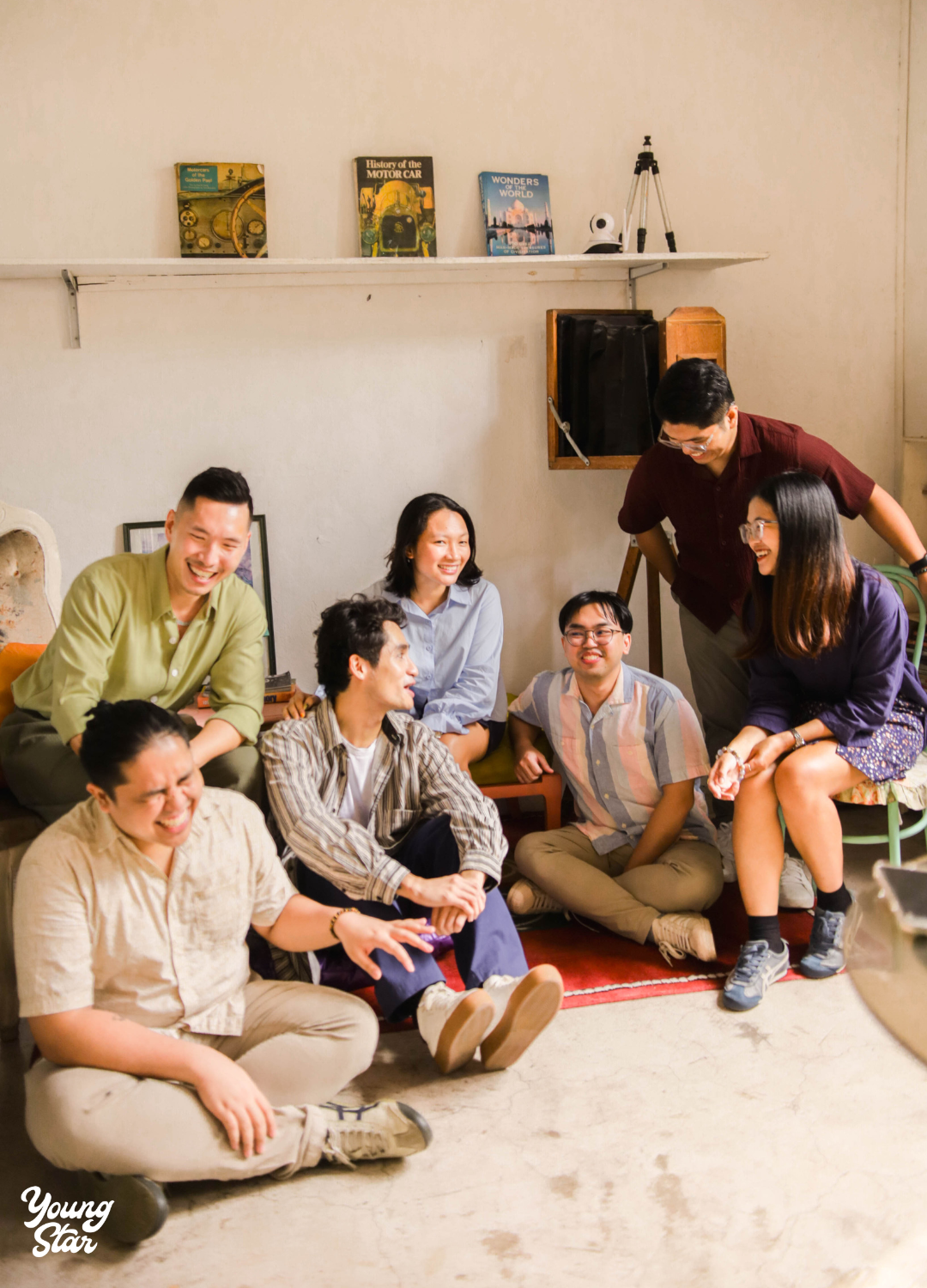
“It’s just hard because hope is a sewer rat, Emily,” JP says, referencing a Caitlin Seida poem. “It’s like a tiny monster that you have to keep feeding and feeding, and you get the nutrients from other parts of your life, not necessarily from the work. I don’t know if what I’m doing is courageous, but I’m definitely hopeful. And I get hope from being with my friends, seeing my nieces and nephews and hoping they will inherit a better Earth than us.”
The collective is also a great source of courage. “It comes from the belief in transformation and from the people who are willing to struggle for the good,” researcher Chelsea Agapia says. Juan Felix remembers martial law survivors he’s met through the work: “Nanalo na ulit si Marcos, pero tuloy pa rin ang laban.”
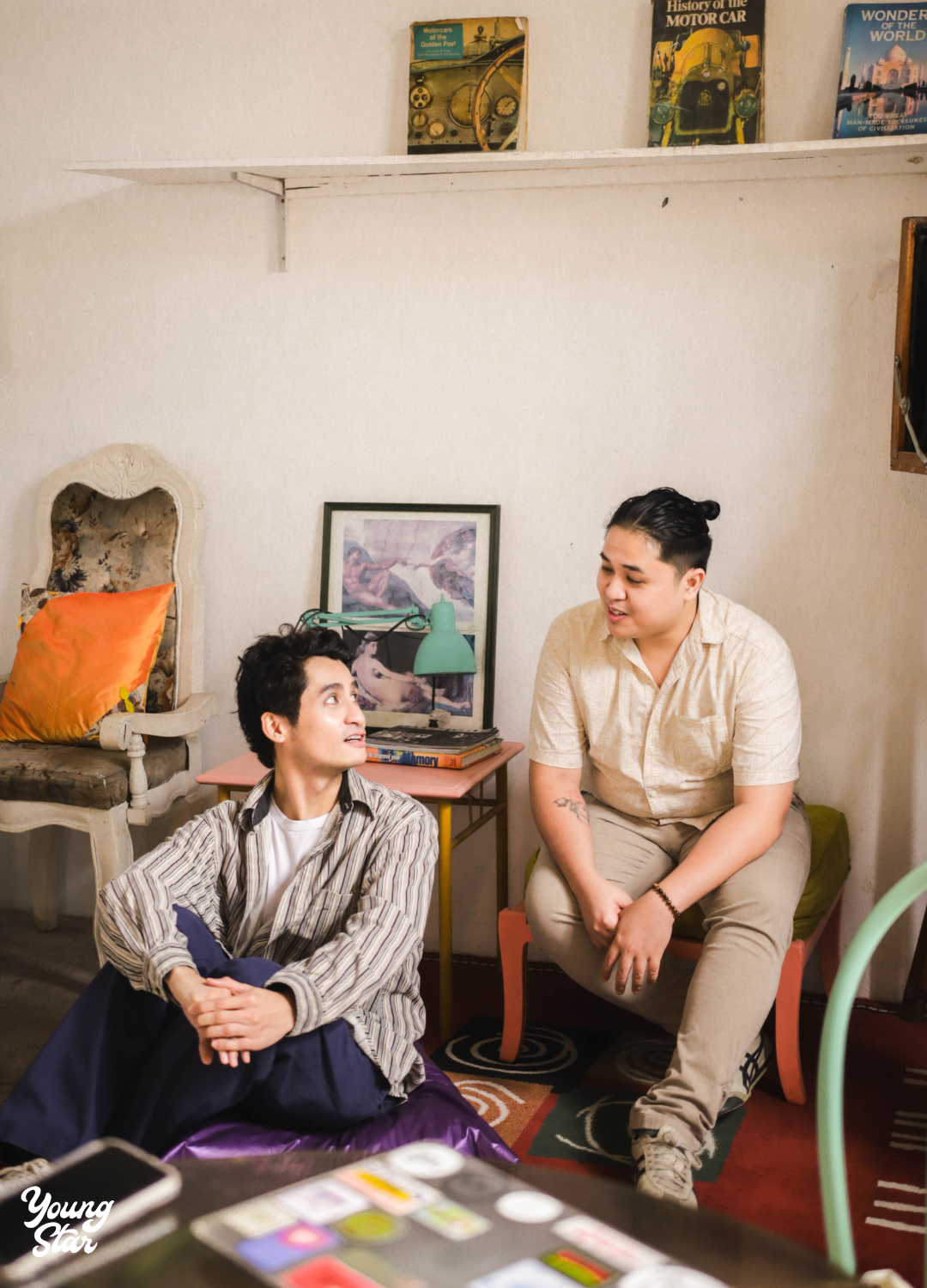
“Courage and hope are like magic for me,” Owe says. “The work we do, reaching people and getting into their minds, it’s immense and magical. I get my courage mostly from the magical experience of discovering the world through the lens of research.”
JP adds, “The reality is it's not enough to be courageous. There has to be some level of magical thinking that comes with the work, not just for us. If you’re a doctor, you work with a certain faith.”
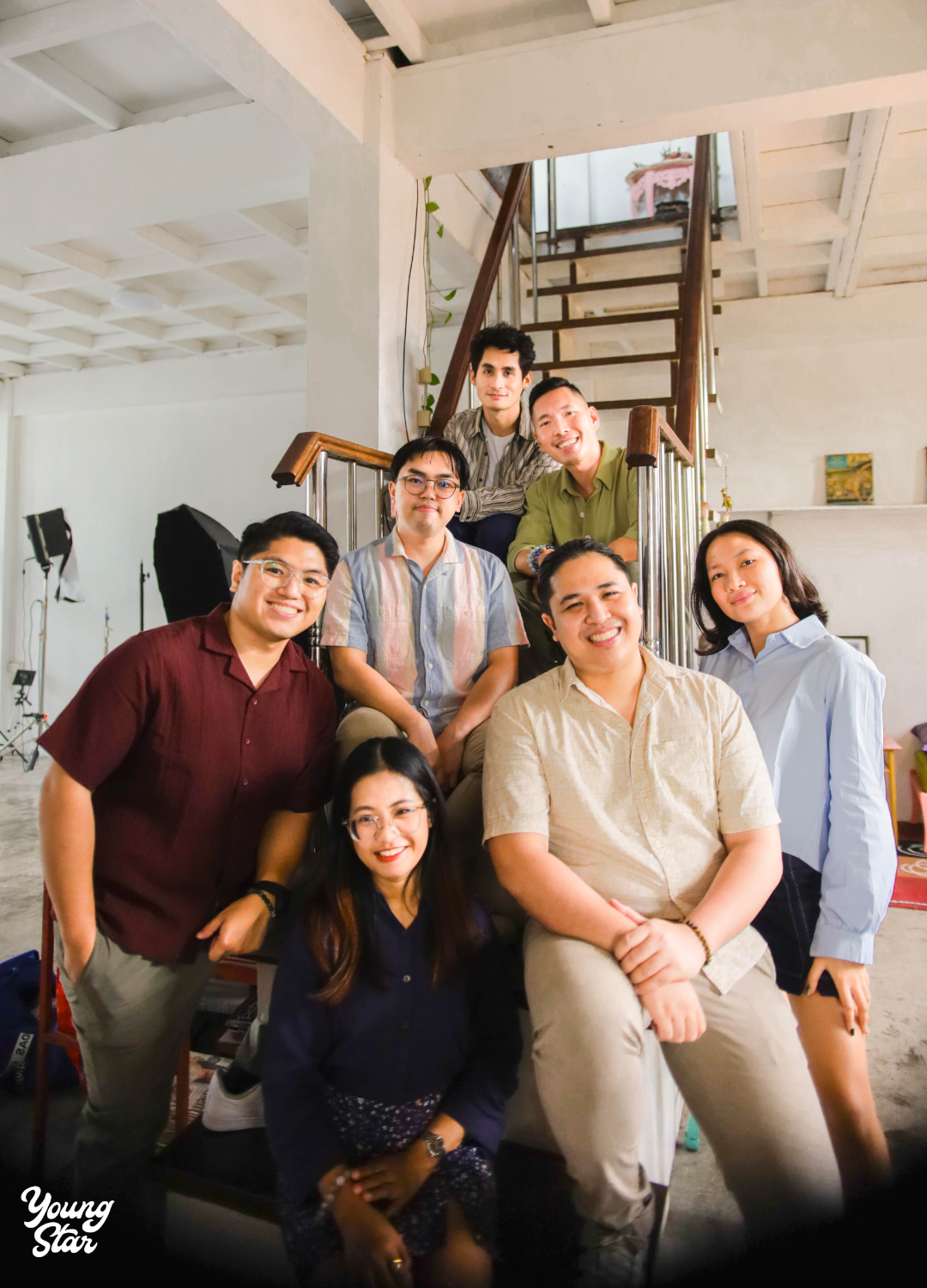
“The work I do is difficult, (but) I cling to (the idea that) there is more to this chaos than I’m seeing right now. I’m hoping the magic I bring can make it a little better,” Owe continues.
I’m reminded that some of the minds behind Sigla are people I met for many different, completely serendipitous reasons: the friend of a friend, someone I exchanged a Google Drive of e-books with, all before I even knew I wanted to work in a newspaper. How magical and hopeful, to realize I am surrounded by so many good people without me even looking for them.
***
Learn more about Sigla at siglaresearch.org and connect with them on Instagram at @siglaresearch.
Story by Andrea Panaligan
Photos by Elleisha Angeles
Shot at Casa Content Studio

